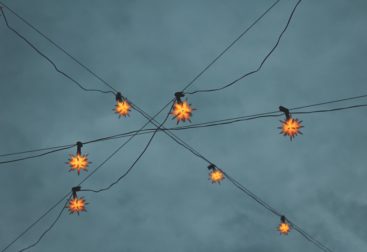Earlier I remarked on Neuroskeptic’s coverage of some new scientific research into consciousness.
I’ve been wanting to think and write about the significance of this experiment a bit more.
In some sense, what we are talking about is how a scientist or technician — who is, as we say, “outside” my mind — can know what experience I am having “inside” my mind.
For a long time in philosophy as well as experimental psychology, it has been held (with plenty of dissenters) that experience is private. No matter what look or expression is on my face, you can’t really know what I am thinking. Similarly, no matter what visual stimuli you present me with, you can have no knowledge of what my experience “of” it will be like. So if I present you with an orange stimuli, it may very well be, that for all we know, that you experience it as I would experience another color, say, purple.
Descartes was making the same basic point, I think, when said that as far as he himself knows he “may be in the Matrix.” Remember philosophy class? There are no markers in experience by which to determinately settle the question whether we are experiencing reality or experiencing a dream. This is what we discover when we make, “an inquiry into human understanding,” as later thinkers will put it. There’s just something about being a mind that separates it from the world of “beings” or “Being.”
If you look straight ahead and see the white board at the front of the classroom, it may seem to you like you are seeing the whiteboard. But are you really? Couldn’t you be having a very real-like dream in which you experience being in this classroom, looking straight ahead and having the experience as if of seeing the whiteboard?
After all, have you ever had a dream that seemed real? That’s Morpheus’ actual question he puts to Neo in The Matrix film. In that real-seeming dream, you thought every thing you saw was real. That’s what “seeming real” means. But it turns out it wasn’t. Right now seems real. But maybe it too is not.
What’s to say that now won’t be like the last time and later turn out to be a false or non-veridical experience?
Again: right now as you sit in the classroom, your experience of the white board seems real. And last night your dream that you were in the classroom and seeing the white board seemed real. Shouldn’t we — or let’s say “you” — admit that there a no markers in your experience right now that show it to be real and not just a very real-seeming dream?
If you answer that “No I won’t admit that” or equivalently “There are indeed markers to differentiate dreams from reality” then you are basically going back on our shared basic assumption which is that “once we had a dream that seemed real.” That is to say, if you have ever had a dream that seemed real, then maybe now is a dream too since it seems real too. And there’s no knowing which is the case from one experience to the next.
As anyone who has read Descartes carefully knows, it’s not actually about dreaming per se. The real mover here is the “demon” who, as far as we know, could go around making the world seem a certain way to us, when in fact, it is different.
There seems to be a gap between our minds and the world. A gap that would allow something or someone to come between us and the world and manipulate our experience of it or in reaction to it as stimulus.
This is not a practical thought. It is highly impractical to think this way (as Descartes realized). He said don’t do this all the time, just once a year or so. And don’t act on (or “be practical about”) anything you discover while having this deep metaphysical-skeptical thought.
As many students might point out in philosophy class, even if all these people I see before me are really just part of a dream, that does not license me to treat them as if they were anything else at all. I can’t just turn around and kill them because I “realize” or “think” that they aren’t (or better, “might not be”) real. A dream-policeman would still dream-arrest me and I would still go to dream-jail.
Anyway, before moving on let’s talk a moment more about how this Cartesian picture is supposedly out of favor today. Vestiges of it lurk everywhere. But contemporary naturalism asserts (wouldn’t it?) that we are physically similar enough that the stimuli out there causes in me a certain reaction (or experience) and the same stimuli would cause the same reaction (or experience) in you. For example, our rods and cones and so on are similar enough that we can know (according to the naturalist paradigm) that experience of an orange stimulus is an experience as if of an orange stimulus and never a purple one.
And somewhat more behavioristically, but not wrong for that, any facial expression I am making or behavior I am performing can reliably be taken to reflect my “inner” states. Now of course there is such a thing as “acting” and “faking it.” But that’s not to the point. The point of naturalism is that there is not this unbridgeable gap or gulf between Mind and Being in every last case. If we knew more (or if our science were further advanced) we could in principle trace the causal path from the world to my experience. And this causal path would be deterministic and necessary such that nerve stimulus of XYZ kind always produces or causes experience of a certain ABC kind.
So the naturalist wants to say that there is no divide between Mind and World of the kind we’ve been discussing. Indeed, they deny Cartesian dualism, by saying that the mind (or my experience) is itself some physical event, something with the same substantial being as what Descartes (and many of us) had been calling “the outside world” of beings and Being. There are not two types of Being, Mind and World; there’s just physical stuff arranged in more or less complicated ways such that some physical, complex arrangements are themselves experiences. Experiences cannot be irreducibly mental or private or separated from the world by a gap. They must be physical.
We do not yet understand how this could be so. But it’s part of naturalism. I suppose we could call it a “constitutive assumption.” Fine, it is a constitutive assumption — which is not yet definitively proven — that the mental is physical. But that it is not yet definitively proven is part of the theory. Naturalism is assuming it. It’s making a metaphysical claim, not an epistemological one. It’s not saying we “know,” epistemologically speaking, that all mental events are physical events — or even understand what such a claim would mean — it is just assuming that it is so.
I hear you say: “WTF?” Okay, let me explain “metaphysical” and “epistemological.” Something is metaphysically the case (i.e., something is real) if it is indeed the case even if it’s being that way could not at the moment be explained by our best epistemologies, namely the hard and soft sciences. So, “metaphysical” means how things really are and “epistemological” are how we know them to be (from our perspective).
The metaphysical and epistemological come back together in a thought experiment. Just imagine that we knew (epistemologically) everything there was to know. At that moment (if it were possible) then a fact would be metaphysically and epistemologically speaking the same. It would be metaphysically X-way and epistemologically X-way too. Thus, according to this way of speaking, the way things really are… the way things are in themselves… or, finally, the way things are outside of all our ways of knowing them is how they are “metaphysically,” as we say. On this account, the thought experiment is slightly off base, in the sense that our epistemologies only ever approach asymptotically the way things are metaphysically speaking. Interesting to think about, but enough for now.
Anyway, the constitutive claim of naturalism is a metaphysical claim that everything is physical or material or natural (not supernatural).
Let’s get back to the recent experiment which is ostensibly my topic. The experiment seems like it is going to undermine any remaining dualist assumptions that may continue to lurk in our self-understanding. Recall that Leibniz said in a dualist moment that if a human were to shrink him or herself down and walk into the brain as if into a mill, all he or she would see would be brain stuff or analogously gears and pulleys and so on. But nowhere would he or she see a thought or a mental event or a mind.
The metaphysical assumption constitutive of naturalism about the mind is that it should be possible one day (at least in principle) to know what someone is thinking just off on the basis of the physical arrangement of their brain. It should be possible in principle to shrink down and walk into the brain and see which neurons are which thoughts.
Well, a hopeful upshot of the experiment above is that from knowledge of the state of the brain we could have knowledge of the state of the mind. Remember: the dualist assumption is that you cannot.
So this experiment militates against dualism.
Cool, huh?





